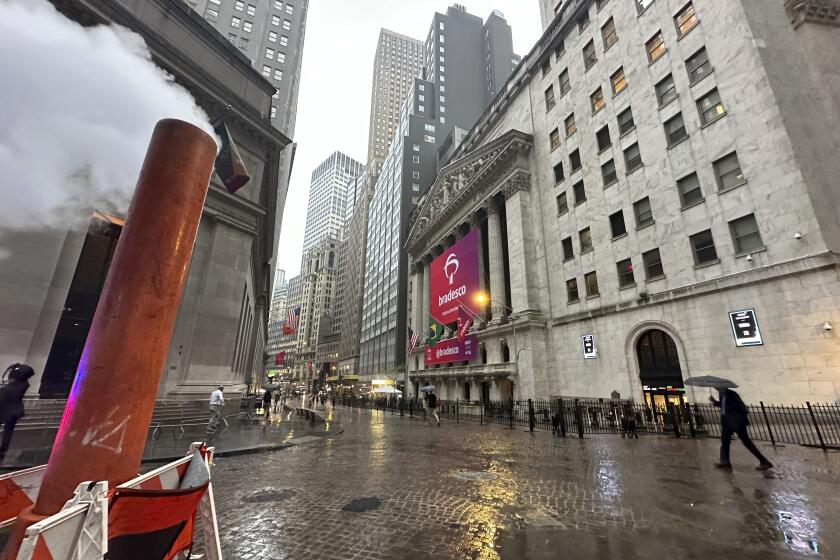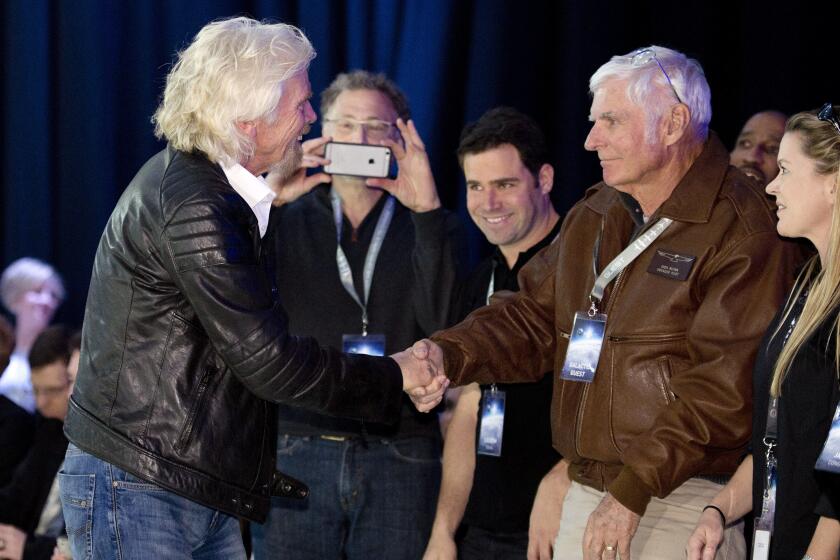Firm’s Records Seized in Ponzi Scheme Probe : Inquiry: FBI agents take data, equipment at Tustin investment management company suspected of bilking customers.
Tipped off by disgruntled investors and suspicious company officials, authorities on Monday seized records and computer equipment at a Tustin investment management firm suspected of bilking customers out of about $24 million.
Armed with a federal search warrant, about a dozen FBI agents spent the day at the Tustin office of B.H. Rothchild & Gray, carting away about 100 boxes of records and computer equipment that might hold clues.
The money allegedly was taken from a pool of about 480 investors, said company President Thomas Grahovac, who took over the firm late last year and promised defrauded investors that they will get their money back.
“The FBI is doing me a big favor,” Grahovac said.
Grahovac said he suspected wrongdoing shortly after he was hired 18 months ago as a vice president. Complaints by Grahovac and several investors led to the federal probe.
There have been no arrests in connection with the document and equipment seizure. Special Agent Mike Anderson of the FBI’s Santa Ana office said investigation of an alleged Ponzi scheme is ongoing.
Anderson said little about the alleged scheme, other than to characterize it as a “substantial case” and to say agents have been unable to locate any of the $24 million invested by clients over a two-year period.
Court documents filed in U.S. District Court in Santa Ana reveal that authorities think a large-scale scheme was in operation, centering on a San Diego subsidiary of B.H. Rothchild. That subsidiary, called Ocean Best Seafood, was allegedly used as a front for a fraudulent factoring program. Factoring is a type of financial arrangement in which a company sells receivables--money owed to a business--for cash at a discount, rather than waiting for the receivable to come due.
Institutional investors most often act as factoring companies, investing in and taking on the risk of a receivable that may be uncollectible.
In the Rothchild case, a company source said, brokers sold bogus receivables for seafood products to private investors, promising them 3% returns on their investments. To assure them, brokers showed company brochures that described Ocean Best Seafood as having an array of large institutional customers such as the Alpha Beta and Safeway supermarket chains.
The company, in fact, did not have any such clients, according to court records.
Some money taken from the investment pool was used for personal expenses--such as gardening services and child tutoring--by B.H. Rothchild founders Joseph Hallock and Joy Linn Bouwkamp, court documents said.
It was not clear if Hallock and Bouwkamp, who were unavailable for comment, were suspects in a criminal investigation. The FBI would not comment on possible arrests.
Investors’ funds were also funneled to other business ventures allegedly set up by Hallock and Bouwkamp, documents showed.
New investors’ funds went to pay dividends to earlier investors, court records showed.
“Very little, if any, of the investor monies had been used for the factoring program for the operations of (Ocean Best Seafood),” wrote Special Agent Heather D. Power-Anderson.
In the documents filed in federal court, Power-Anderson said Hallock and Bouwkamp are no longer associated with B.H. Rothchild. They were “escorted out of the office” in September by then-vice president Grahovac, she stated.
Grahovac is assisting the FBI in the investigation, according to Power-Anderson’s written statement filed to support the search warrant, obtained on Friday.
“There were no receivables. They didn’t exist,” Grahovac said Monday. He added that the company has not closed and that he expects to turn it around.
Grahovac said he recently wrote to the 480 investors who lost money and asked them to be patient.






